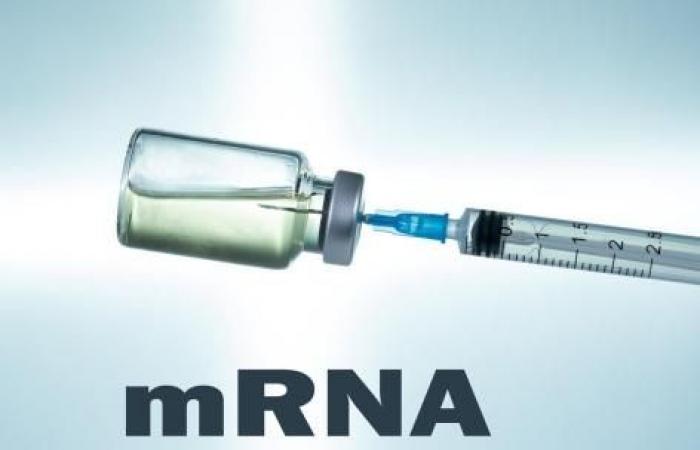“To have something that developed from ourselves recognized as foreign is what was lacking at the start”. All the interest in research on the mRNA vaccine against melanoma is thus summarized by Professor Céleste Lebée, professor of dermatology and head of the skin cancer treatment center at Saint-Louis hospital, guest of the program “La Health in Questions” on Medical Frequency and Why Doctor and interviewed by Dr Jean-Paul Marre and Professor Jean-François Bergmann.
After appearing to the general public during the Covid-19 health crisis, the messenger RNA vaccine technique, for a time diverted from its initial objective, the treatment of cancers, is reinvesting in the field of oncology. And particularly in the treatment of melanoma, the most serious skin cancer. With spectacular results in an ongoing phase 3 trial as a combined adjuvant to surgery and immunotherapy.
“A 5-year survival of more than 50% in metastatic melanoma”
“Melanoma is the most serious skin cancer because it metastasizes and is unresponsive to radiotherapy and chemotherapy”, recalls Professor Céleste Lebée. A first essential advance took place a few years ago with targeted therapies and immunotherapy: “We are now achieving an incredible 5-year survival of more than 50% in metastatic melanoma, whereas 15 years earlier, this survival did not exceed 6 to 8 months”announces the professor of dermatology.
And this first victory against cancer “which camouflages itself and modifies its environment” led researchers to think about adjuvant treatments to avoid relapses. The objective: “Using the existing tumor as a sort of vaccine that helps immunotherapy work”explains Céleste Lebée.
“Circumventing the tumor’s resistance mechanisms”
Hence the work on the messenger RNA technique making it possible to target the antigens produced by the tumor itself, to educate the immune system to circumvent the tumor’s resistance mechanisms. “The difficulty is to vaccinate against something that you make yourself, to find the solution to recognize the genes of the tumor as foreign to trigger the immune response”underlines Professor Lebée.
To achieve this, researchers have benefited from new tools, notably advances in genome sequencing, making it possible to find the best antigens to stimulate the immune system. In the ongoing phase 3 trial of the use of the mRNA technique in melanoma, two groups were compared: a group of patients treated with surgery and conventional immunotherapy and another group of patients treated with a combination surgery and immunotherapy plus personalized mRNA vaccine to attack remaining cancer cells. Results, a 50% reduction in recurrences in this second group.
“The mRNA vaccine will be the second major therapeutic advance after immunotherapy”
Concretely, the use of this vaccine in adjuvant treatment consists of around ten injections, one every three weeks. With side effects limited to a risk of autoimmunity and the development of a flu syndrome. “But as patients understand that we are using a vaccine produced from themselves, this gives them confidence”specifies Céleste Lebée.
So, from this work on the use of mRNA in the treatment of melanoma, are we moving towards a lethal weapon against this and other cancers? “I am optimistic that this phase 3 trial in melanoma will prove itself and that the mRNA vaccine will be the second major therapeutic advance after immunotherapy”, estimates Professor Lebée. Adding that research advances in this technique will be “exponential”in particular thanks to innovations allowing more relevant pre-clinical studies to be carried out.
“Real moments of pleasure in the face of complete remissions in melanoma”
There remains the question of the -high- cost of such personalized treatments. “But when we manage to considerably extend survival for 50% of patients, that gives as many people who live, who work. If mRNA as an adjuvant in the treatment of melanoma saves lives, it is a way to reduce its cost, hence the interest of this vaccine in terms of public health”, puts Céleste Lebée into perspective. But beyond everything, she adds that the current advances in this mRNA technique provide “real moments of pleasure in the face of complete remissions in metastatic melanoma… that’s why we do medicine!”






